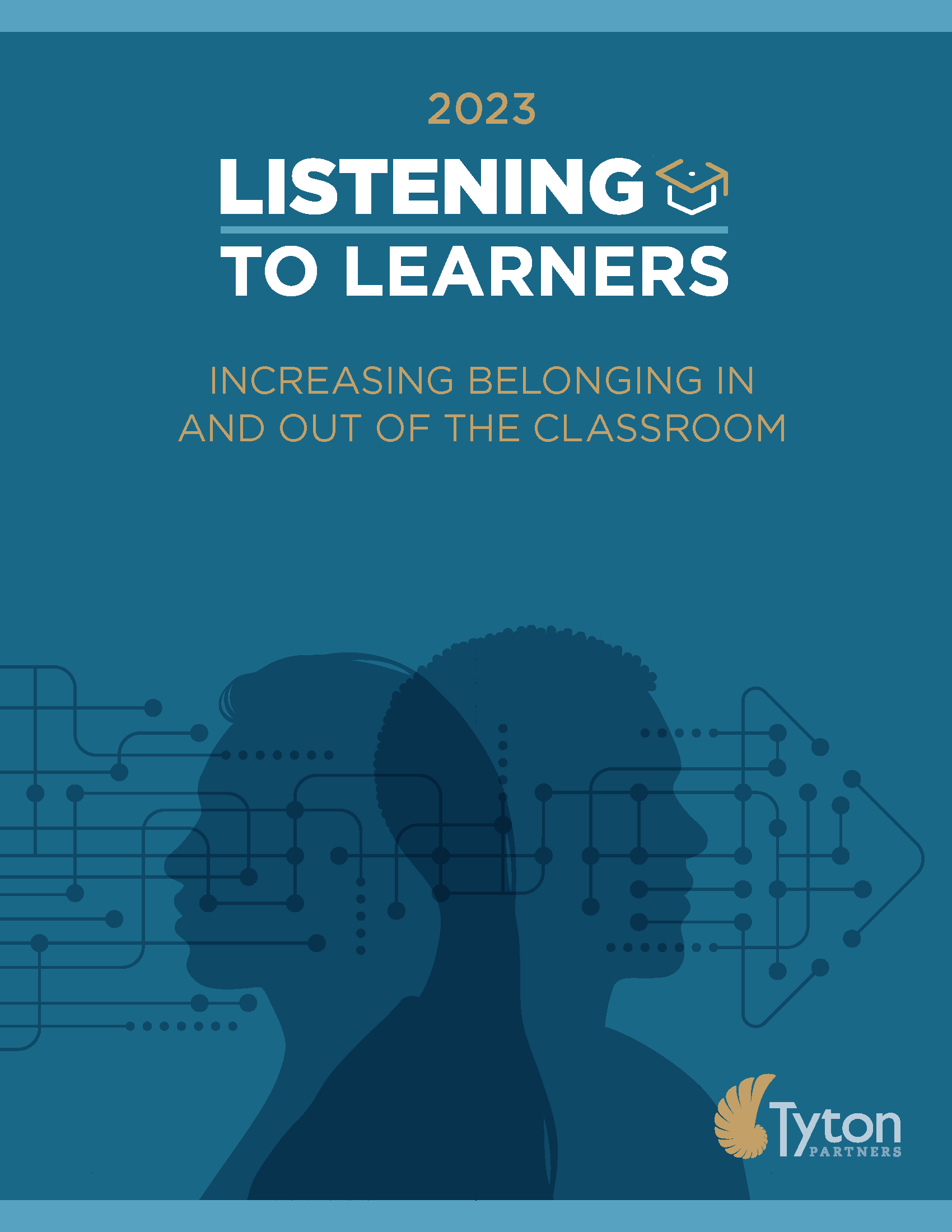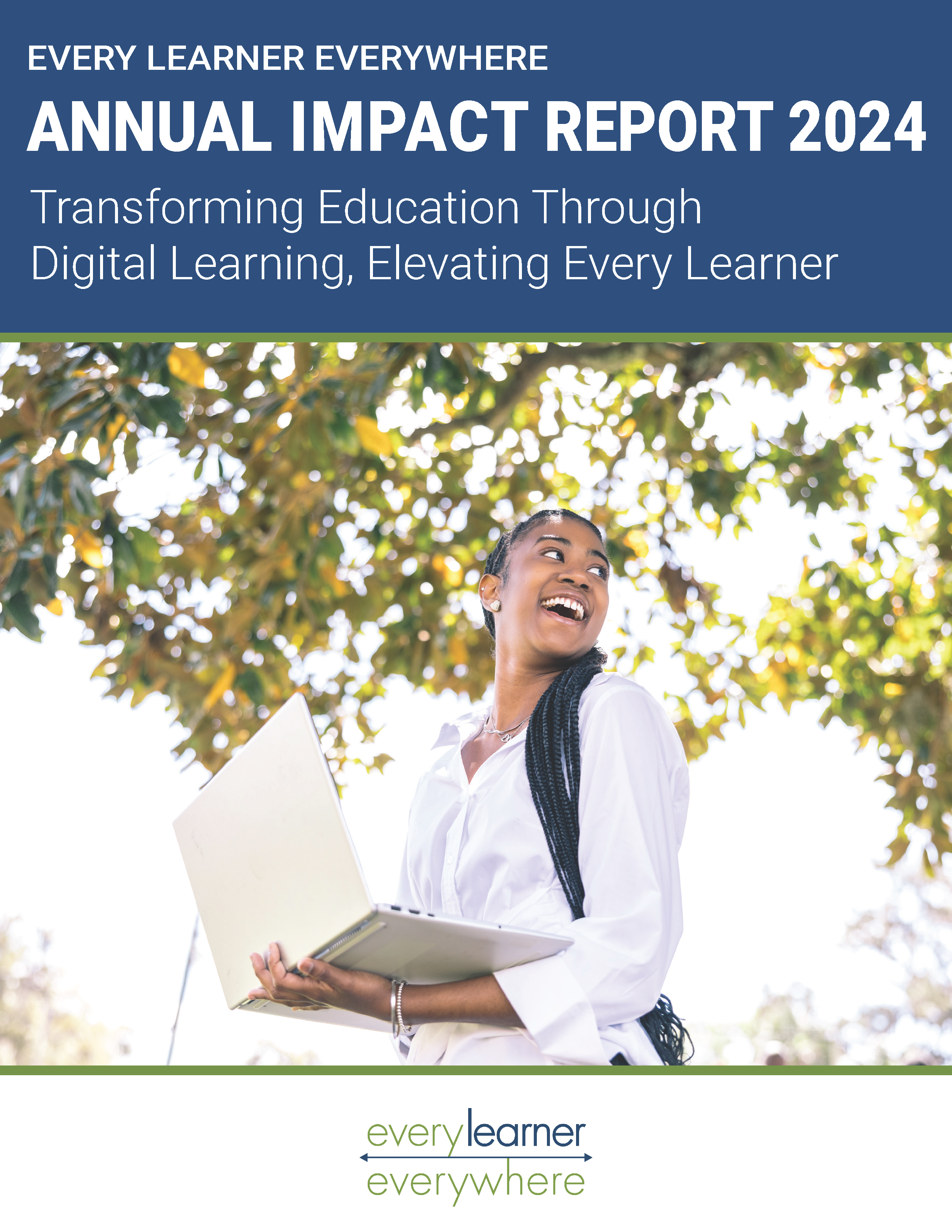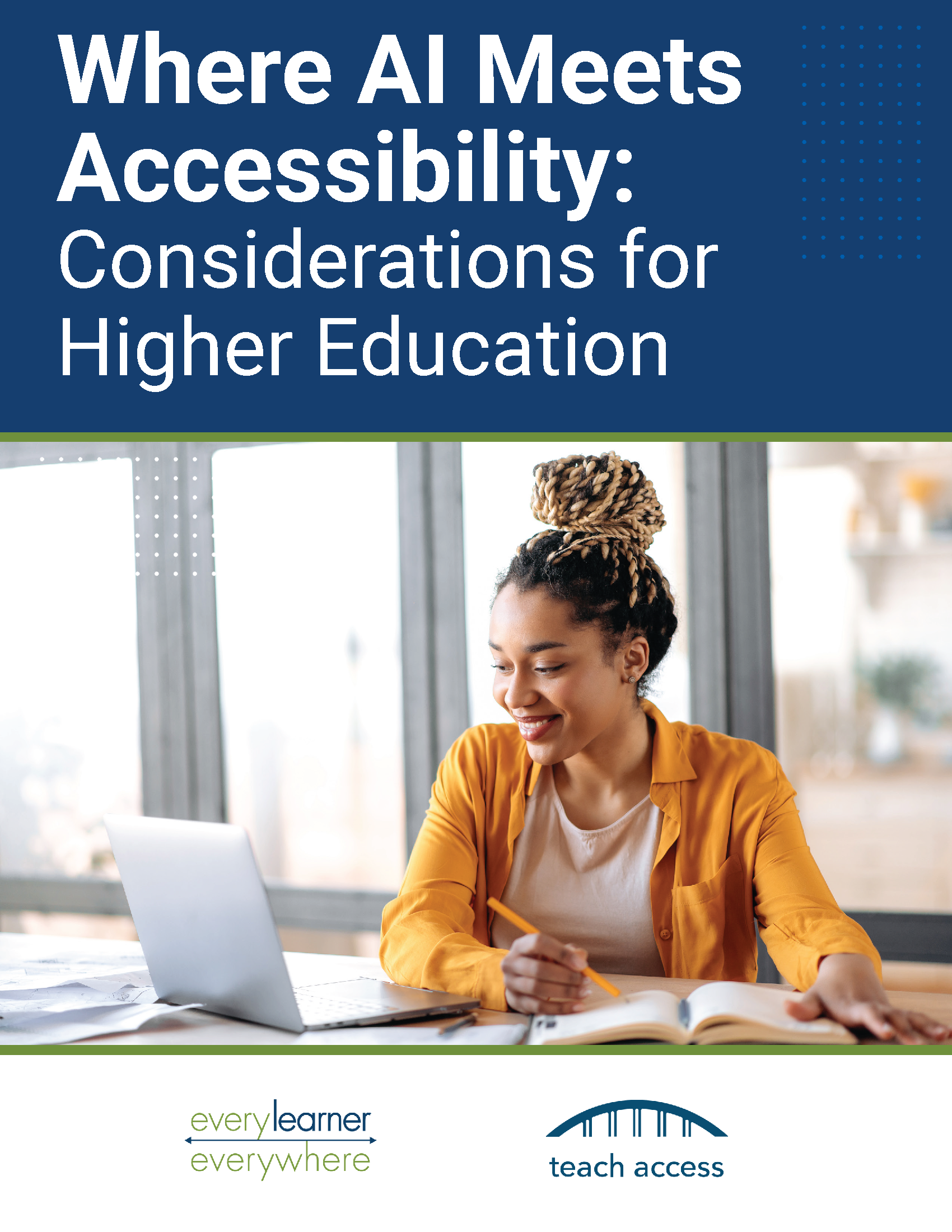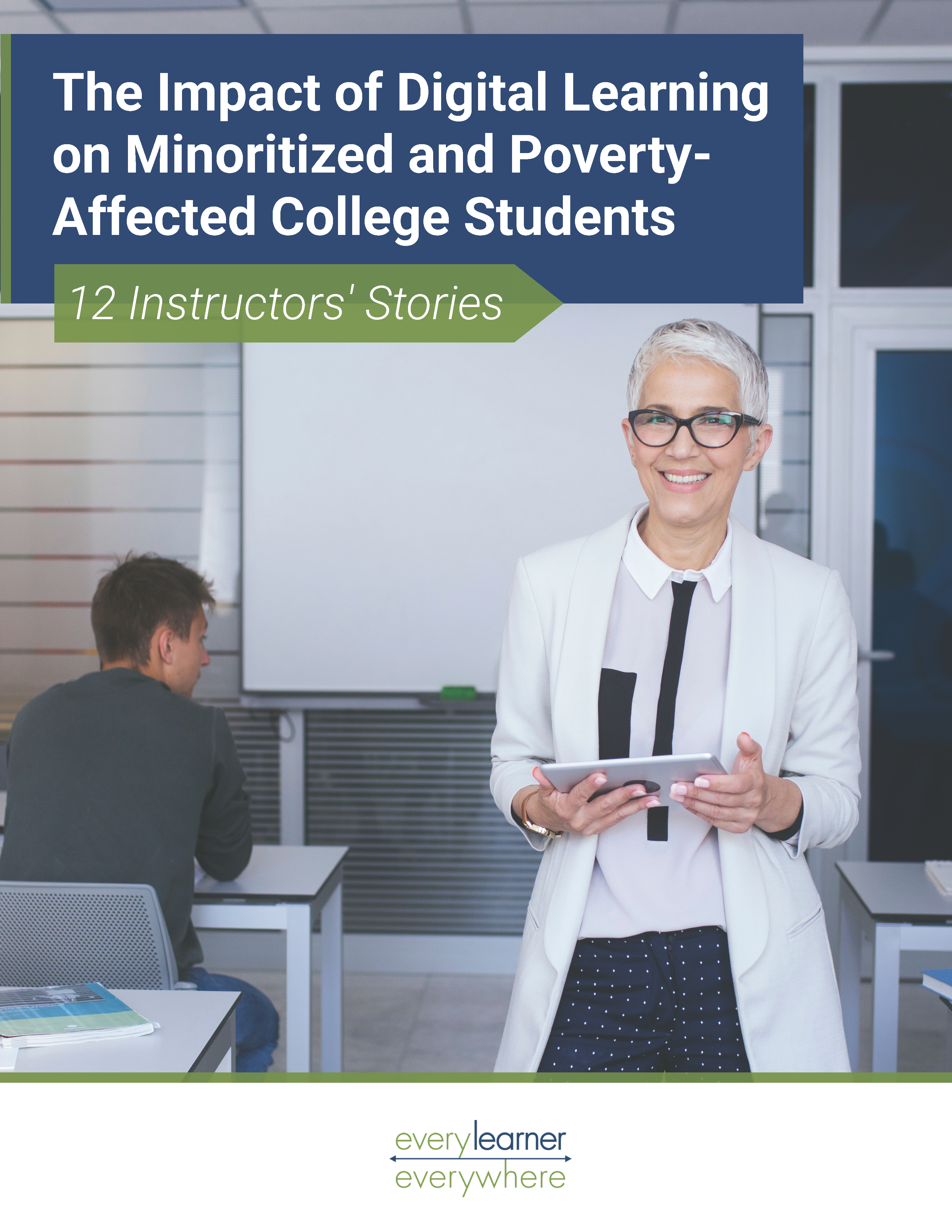Increasing Belonging In and Out of the Classroom
The Listening to Learners 2023 publication outlines strategies that institutions can employ to create an environment where students feel a strong sense of belonging, leading to improved academic performance, increased confidence, and stronger persistence, retention, and graduation outcomes. The report surveyed over 2,000 students and 4,000 instructors, advisors, and administrators from various two- and four-year public and private institutions in March 2023 and provides valuable insights on where institutional and student perspectives and experiences diverge.
Key Findings
- Administrators are Less Attuned to Learner Challenges Than Faculty: Academic challenges, particularly workload management, were the foremost concerns among students surveyed. Administrators outweigh the impact of mental health challenges and should invest more in learner-identified areas of need.
- Evidence-based Teaching Practices Are Correlated with Increased Confidence and Belonging: Learners with a stronger sense of belonging report greater frequency of instructors deploying Evidence-Based Teaching practices (such as active learning, also known as “learning by doing”).
- Digital Tools which Build Community Increase Belonging: Learners with stronger sense of belonging report increased utilization of digital tools designed to create community, such as collaboration tools (e.g., Kahoot or Google Jamboard).
- Awareness and Utilization of Student Supports Drive Belonging: Learners with stronger sense of belonging report greater awareness and utilization of the breadth of student supports available. Communication campaigns to drive awareness and utilization of student services must be customized to specific audiences along the lines of channel and message. For example: two-year students do not prefer email as much as four-year students and first-generation students may benefit from messaging that normalizes seeking support more so than their continuing generation peers.
- Aligning Support Providers with Student Body Demographics Should Be More Common: Less than 50% of students perceive their advisors as having sufficient knowledge of their life experiences (e.g., race/ethnicity, first-generation student, veteran status) to provide personalized advising. We recommend that more institutions address this gap in belonging and outcomes by assigning and recruiting advisors who better reflect the demographics of its student body. Most students (70%) value representative diversity among advisors, while only about 30% of institutions report implementing this practice systematically.






